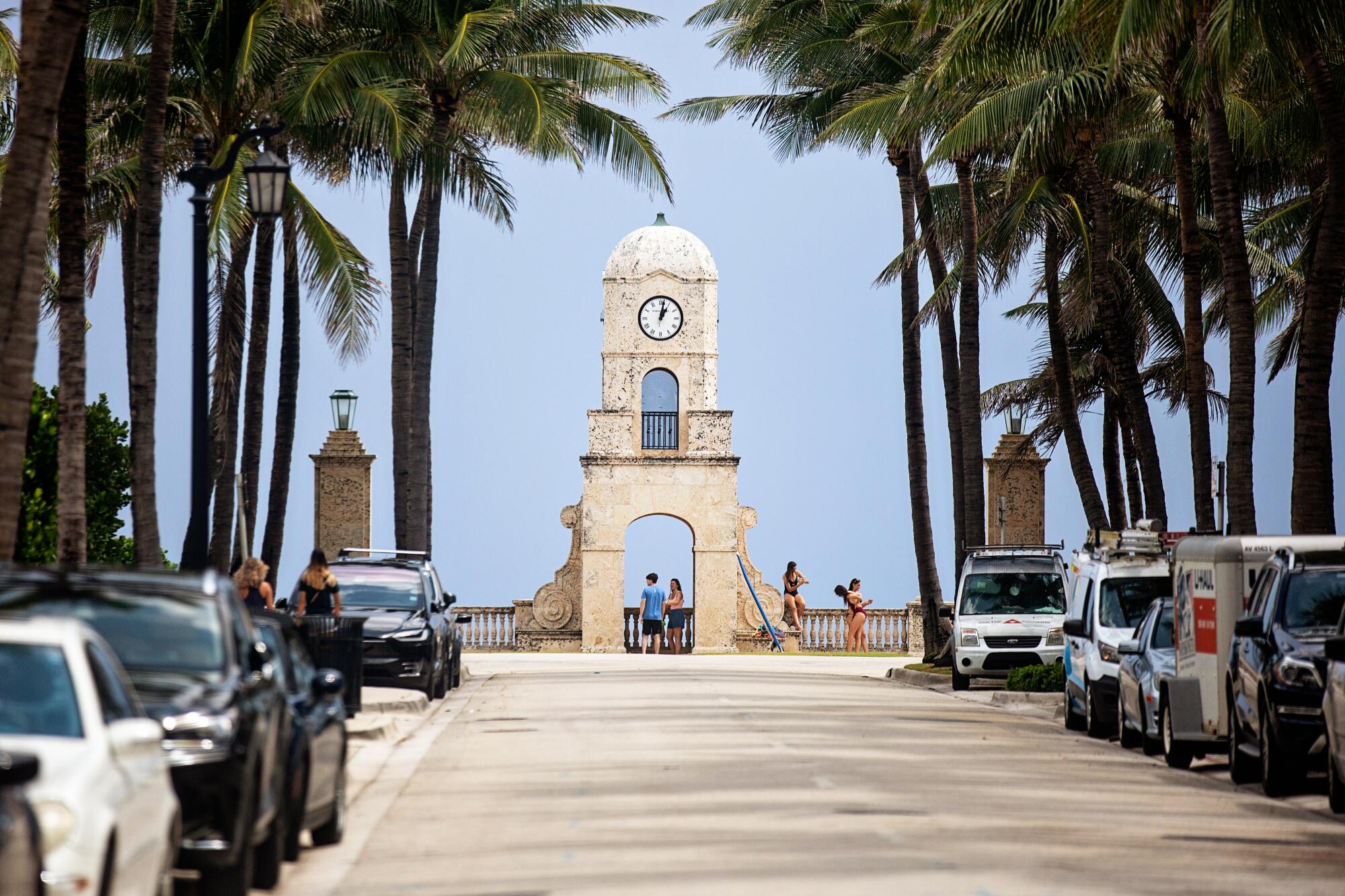
- Share via
PALM BEACH, Fla. — Laurel Baker steered her dark-blue sport utility vehicle through this tony resort town, studded on all sides with tall hedges and metal gates offering stingy glimpses of spectacular mansions.
Private entrances to private beaches read: NO TRESPASSING and KEEP OUT.
Sidewalks are rare in this affluent enclave President Trump calls home, befitting neighborhoods where people eye pedestrians with suspicion.
Baker, chief executive of the Palm Beach Chamber of Commerce, moved here 44 years ago and says Palm Beach has changed. It’s always been wealthy, she says. But people now are more cloistered in their sprawling estates, associating only with those who think like them, politically and otherwise.
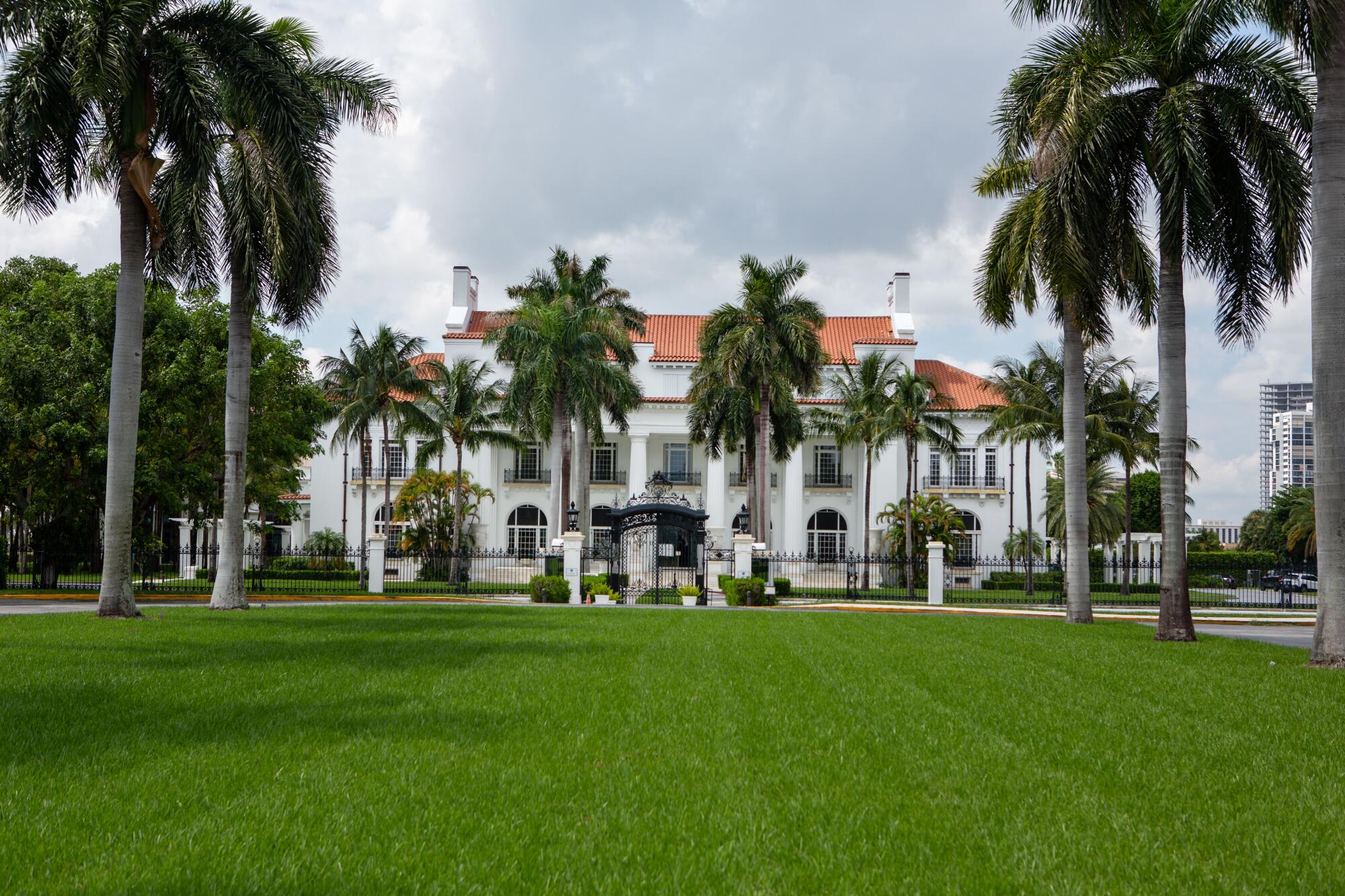
“When we first moved here, we drove around and we’d say, ‘Oh, my God, look at that hedge — it’s 13 feet tall!’ Well, now there are hedges 20 feet tall,” Baker said as a face shield swung from her rearview mirror. “It’s changed. It’s not as friendly.”
It is a proclamation widely made of the country as a whole ever since a lifelong New Yorker turned Florida man became president.
About this series
Even in a pandemic, candidates spend much of their time campaigning in one town after another. But what is the America they’ve seen from their own front doorstep? In this series, Times reporters explore the communities the candidates have called home.
Last year, Trump declared this narrow barrier island his permanent residence, the place from which he votes by mail. He announced the change from his previous domicile, Trump Tower in Manhattan, in a tweet saying he had been “treated very badly” by New York politicians.
It is fitting, perhaps, that a man who staked his presidency on building a “big, beautiful wall” between the U.S. and Mexico would feel at home in his heavily guarded pink mansion, which also functions as the Mar-a-Lago Club.
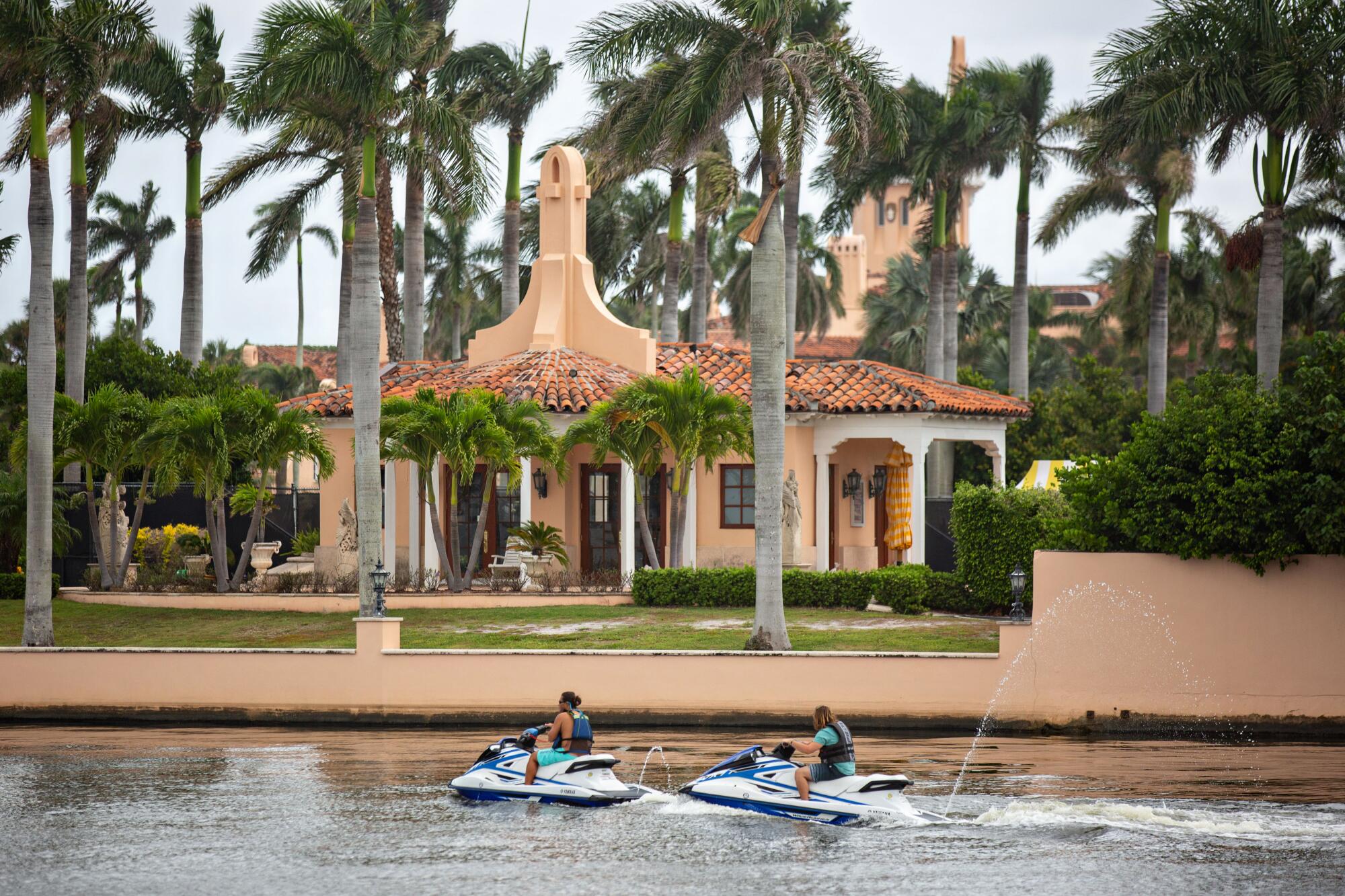
Trump “has settled in a filthy-rich county,” said J. Edwin Benton, a political science professor at the University of South Florida. “It’s dripping with money, so to have settled there makes perfect sense.”
Older Americans like Trump, who is 74, flock to the Sunshine State for its weather and its lack of a personal income tax, Benton says. Florida’s western Gulf Coast and panhandle, he notes, attract people from the South and Midwest with more modest retirements. The state’s eastern Atlantic Coast, where Palm Beach lies, draws mega-wealthy transplants from New York and New England.
“The best word I can use in Palm Beach County: opulence,” Benton said.
Florida is a must-win state for Trump, who defeated Hillary Clinton by 1 percentage point there in 2016. Within heavily Democratic Palm Beach County, the town is an anomaly. About 46% of voters in Palm Beach proper are Republicans, compared with 28% in the county.
In his adopted hometown, Trump has found a place that is whiter, older and richer than the country as a whole. The city of 8,800 is 93% white, compared with 60% of the United States. In broader Palm Beach County, 43% of the population is Latino or Black.
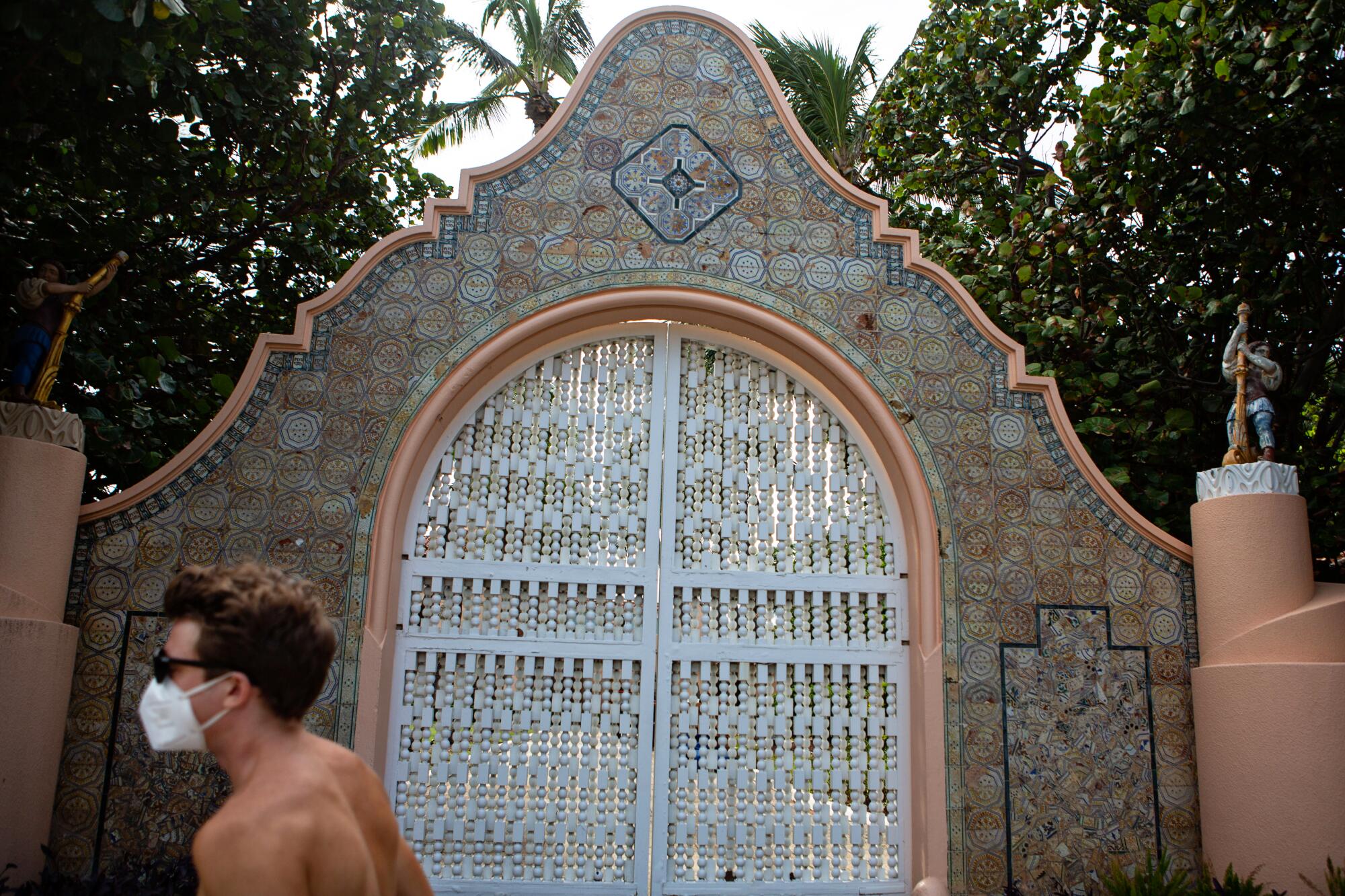
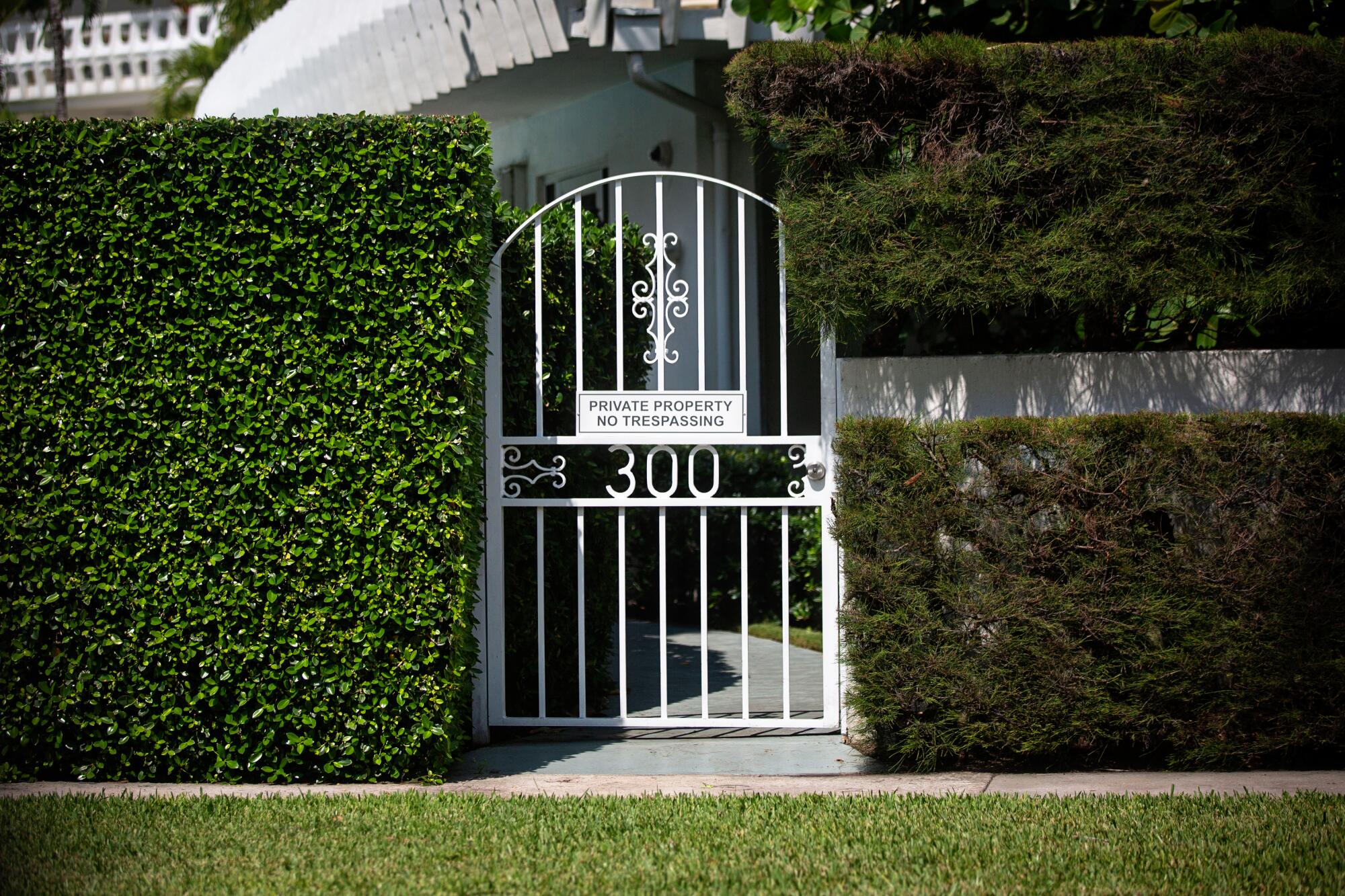
The median age in town is 69. Nationally, it is 38.
The typical value of a single-family home in Palm Beach, according to Zillow, is about $6.6 million — more than 22 times the typical U.S. single-family home value of $295,000. Last year, hedge fund billionaire Steven Schonfeld bought a Palm Beach estate for $111 million, the most expensive home ever sold in Florida, CNBC reported.
This is how the 2020 election looks from the towns that are home to or key to understanding Donald Trump, Joe Biden, Kamala Harris and Mike Pence.
“Palm Beach is a town for insiders,” said Madison Sohaney, a 22-year-old social media manager visiting her boyfriend’s parents’ house on Woodbridge Road, which runs alongside Mar-a-Lago. “Once you can prove to people that your intentions are good and that you’re not looking for the wrong things and you’re not in their business, you have a friend for life.”
“But they can label as well,” her boyfriend’s father, George Buff IV, gently interjected. “Sometimes it’s very unfair.”
Palm Beach occupies a vulnerable sliver of land, less than a mile wide, between the Intracoastal Waterway and the Atlantic Ocean. It is surrounded by water and, as temperatures and sea levels rise, threatened by it.
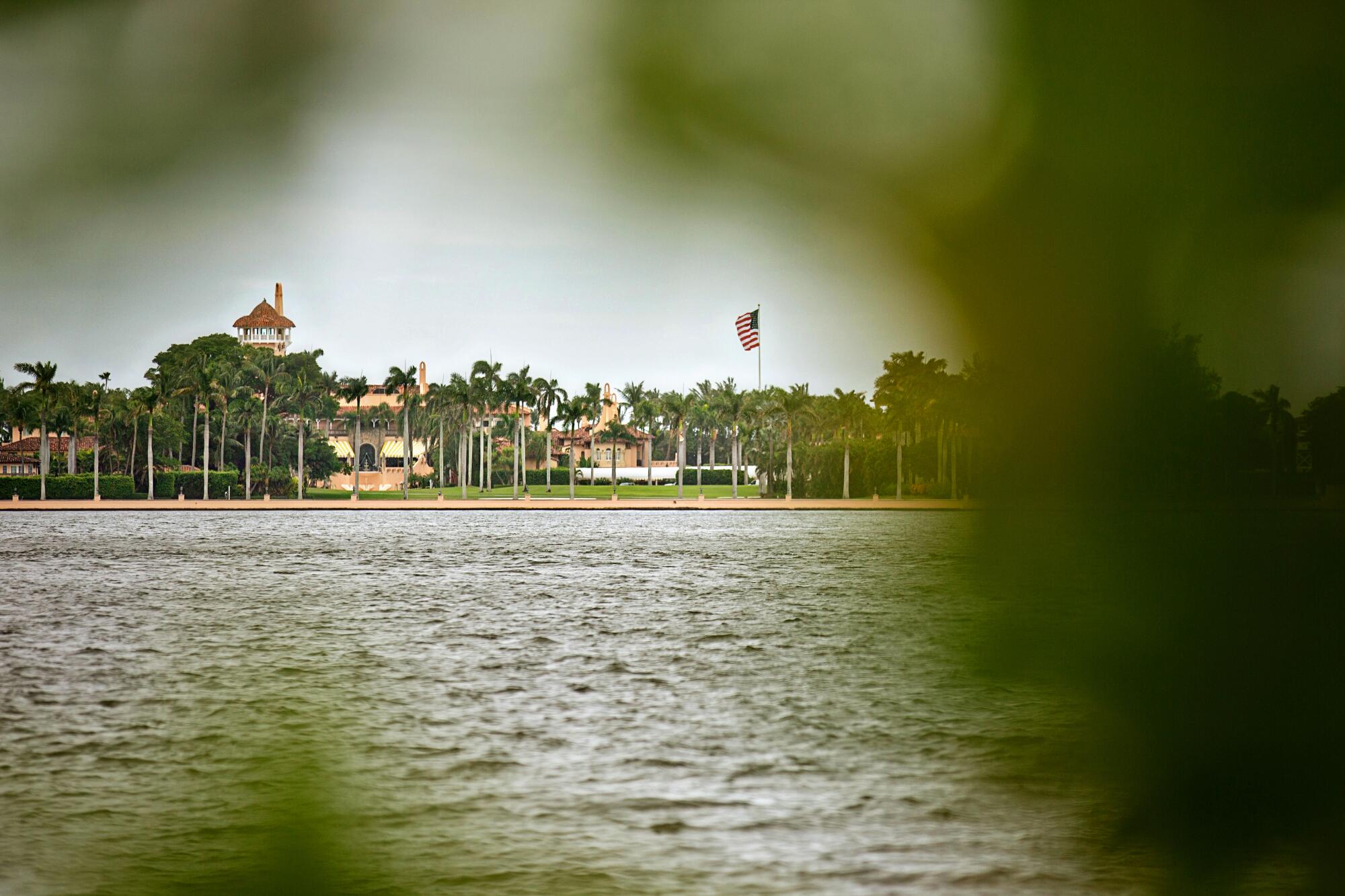
The western lawns of Trump’s Mar-a-Lago, a 17-acre estate whose name means “Sea-to-Lake” in Spanish, will probably be underwater if the ocean rises 3 feet, according to Palm Beach County’s analysis of vulnerability to rising sea levels. Climate scientists predict that is possible before the end of the century.
There is a distinction here between year-round residents and those who live here only during what is called “the season,” which runs from Thanksgiving through Easter. (News organizations have calculated that Trump has spent more than 130 days in Palm Beach in the last four years.)
During the hot, muggy summers, the island is mostly quiet, save for the construction crews that proliferate while homeowners are away. On a recent day, traffic crawled along Ocean Boulevard as they worked. Near Mar-a-Lago, two enormous green iguanas — an invasive species whose population has exploded here as the climate has warmed — sauntered along the road.
The Trump campaign and Mar-a-Lago Club did not respond to requests for comment, nor did the mayor or the five members of the Town Council.
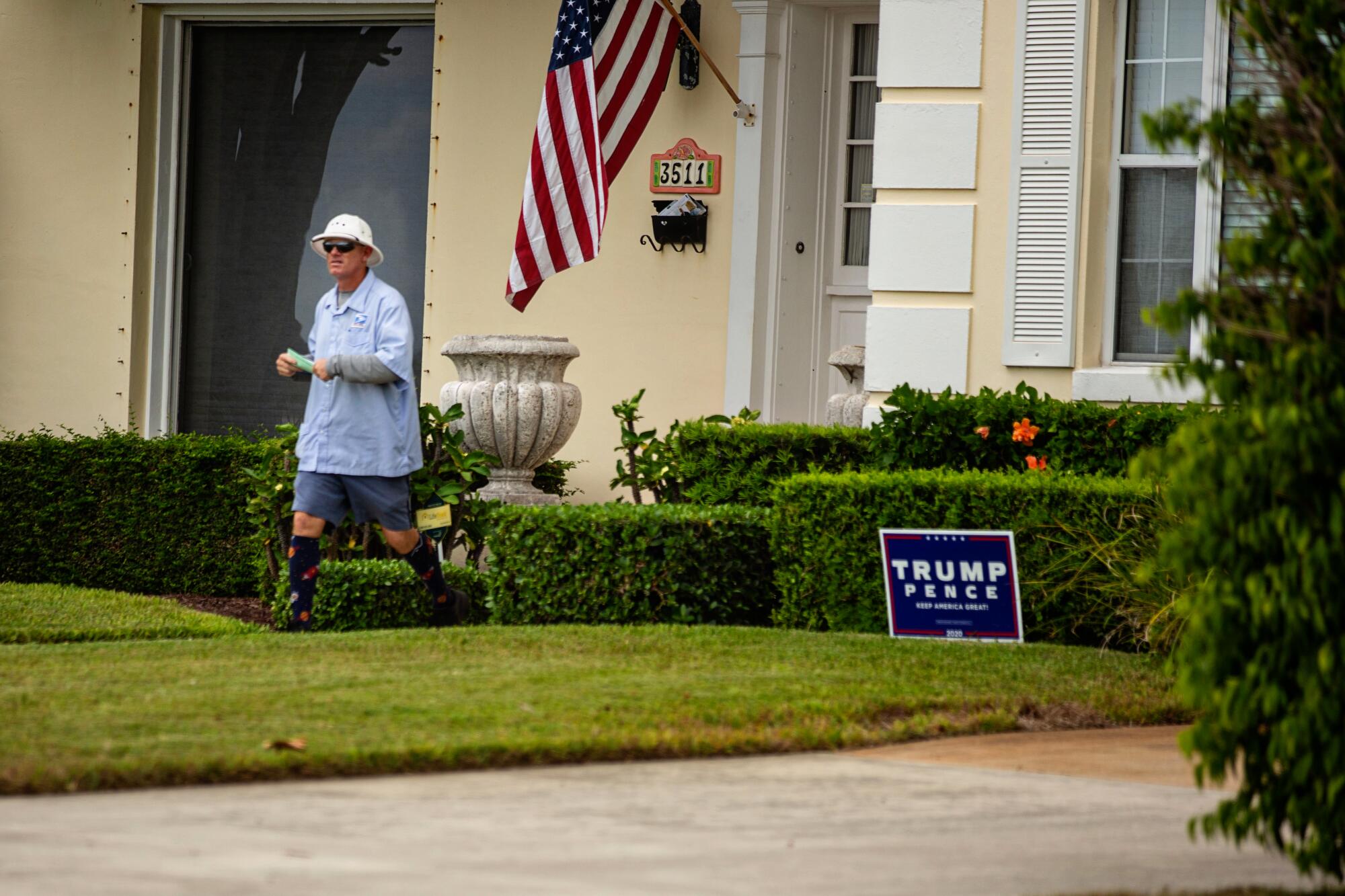
Residents who support the president say they don’t post yard signs or fly Trump flags because they don’t want their homes targeted by protesters. But just across the Intracoastal Waterway, in West Palm Beach, signs for Trump and Democratic nominee Joe Biden compete for attention in neighboring yards. One reads, “Trump: You are the virus.” Another, “Dogs 2020: Because humans suck.”
Palm Beach’s high-society lifestyle harks back to the Gilded Age. In 1894, Henry Flagler, a Standard Oil tycoon and business partner of John D. Rockefeller, opened the Royal Poinciana Hotel, then the world’s largest resort hotel, and extended his Florida East Coast Railway south through the region. Snowbirds flocked.
Mar-a-Lago, designated a National Historic Landmark four decades ago, was built in the late 1920s by cereal heiress Marjorie Merriweather Post, who left the 126-room, crescent-shaped mansion to the federal government after her death for use as a winter White House. But the upkeep was too expensive. The government gave it back to her foundation.
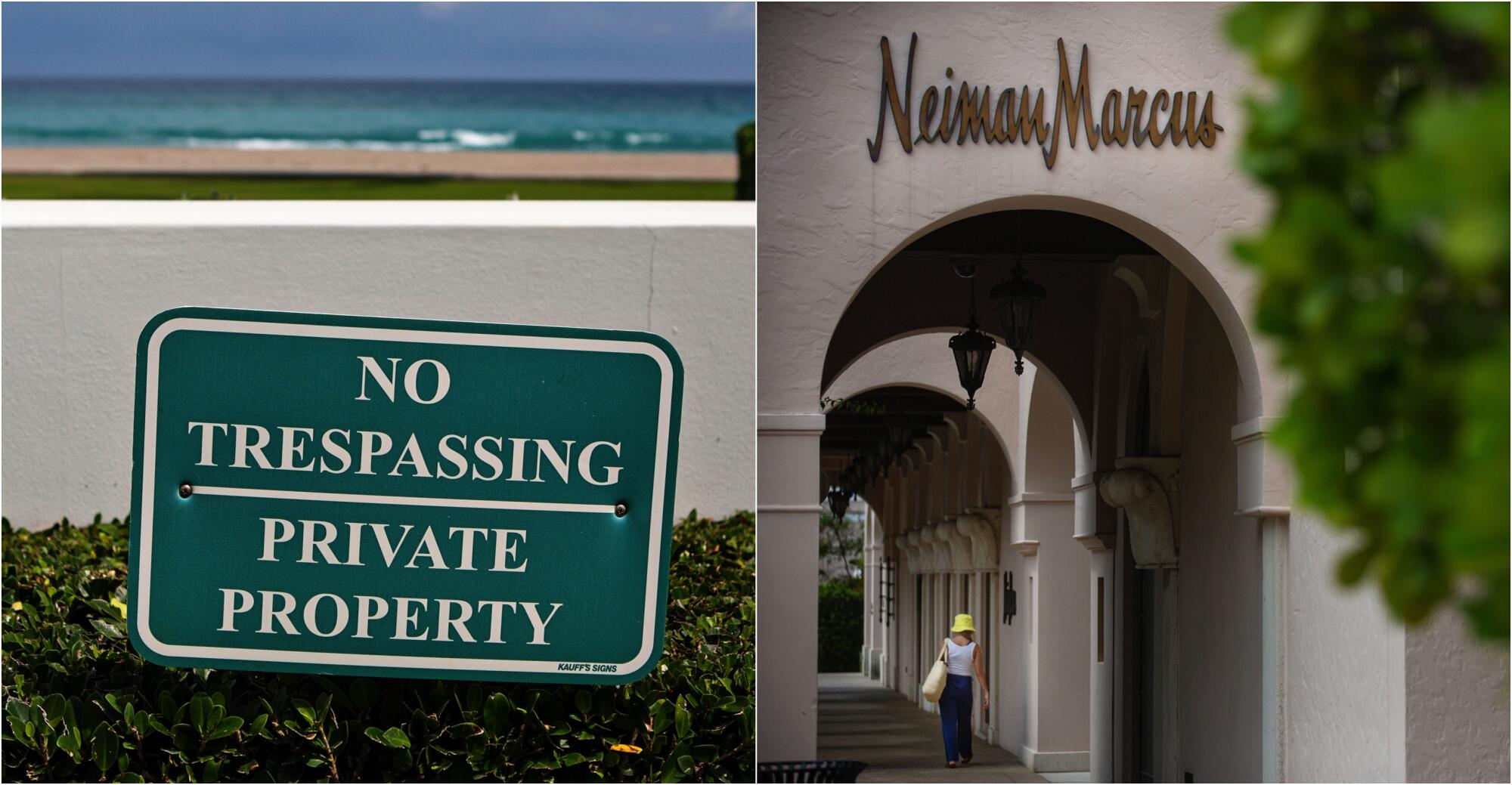
Trump bought it in 1985 and opened it as a private club in 1995. Unlike other clubs that did not accept Jewish or Black members, Mar-a-Lago was open to anyone who paid.
Trump was broadly disliked by the Palm Beach elite, but he relished their attention.
“I’m the king of Palm Beach,” he told Timothy L. O’Brien, author of “TrumpNation: The Art of Being the Donald.” “They all come over, they all eat, they all love me, they all kiss my ass. And then they all leave and say: ‘Isn’t he horrible.’ But I’m the king.”
The infamously litigious Trump sued Palm Beach in the early 1990s after it stopped him from subdividing Mar-a-Lago’s land to develop several mansions, but he withdrew the suit after the town approved him turning it into a private club.
Trump and his club have sued the county multiple times over noise from nearby Palm Beach International Airport, dropping the most recent $100-million suit after he was elected president because the skies above Mar-a-Lago become a no-fly zone when he is present.
In 2006, Mar-a-Lago sued Palm Beach after the town cited it for erecting an 80-foot flagpole, in violation of local zoning codes.
“A smaller flag and pole on Mar-a-Lago’s property would be lost given its massive size, look silly instead of make a statement, and most importantly would fail to appropriately express the magnitude of Donald J. Trump’s and the Club’s members’ patriotism,” the lawsuit states.
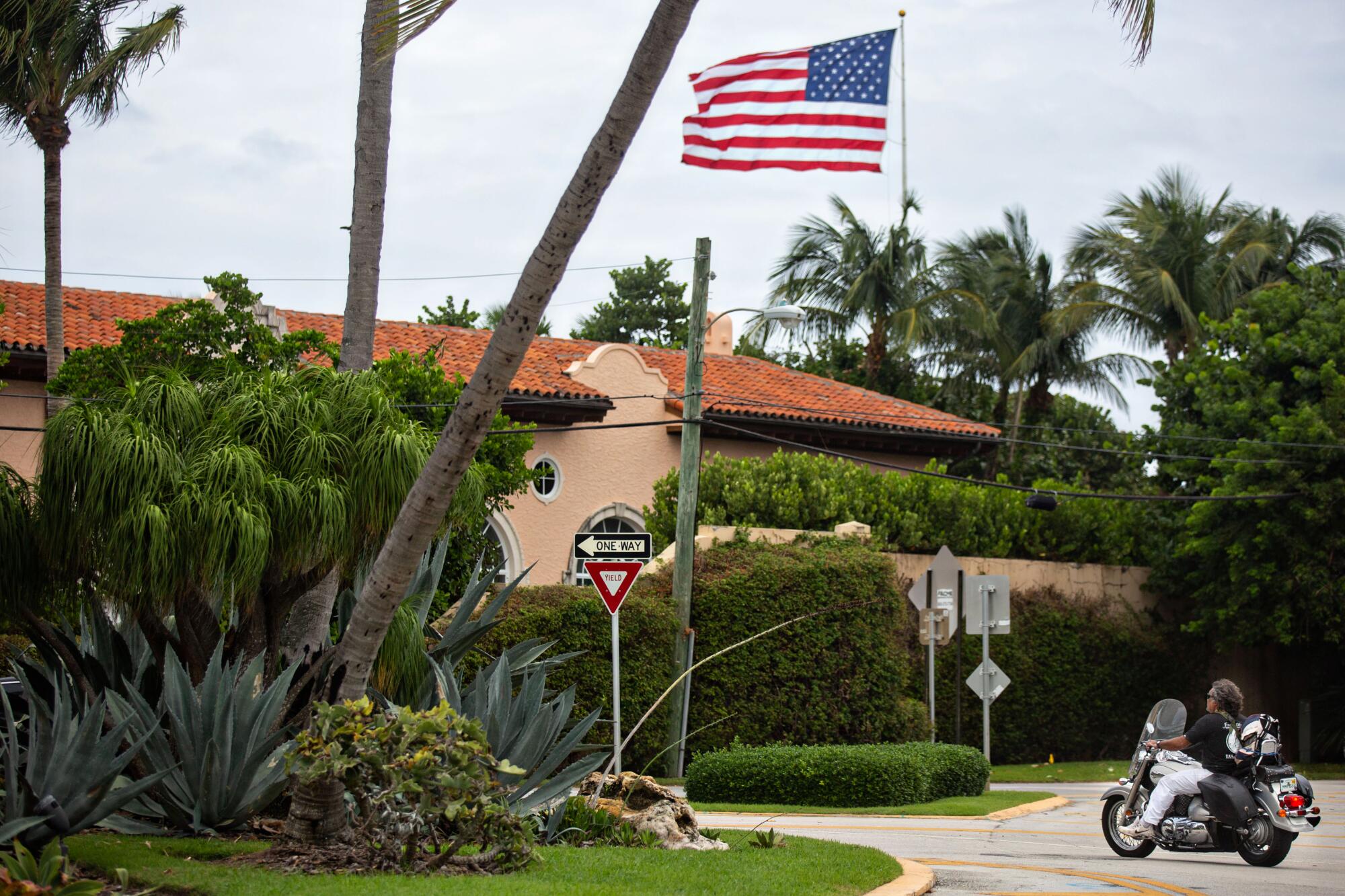
The dispute was settled when Trump agreed to a pole 10 feet shorter and to donate $100,000 to charity.
He pulled a similar move outside Los Angeles by hoisting an oversize flag on a 70-foot pole at his golf club in Rancho Palos Verdes without a permit. He fought with the California Coastal Commission for nearly a decade, got retroactive approval from the city and was allowed to keep it.
Last month in Palm Beach, a tanned man in a blue surgical mask walked into Classic Bookshop, asking for a copy of Bob Woodward’s book, “Rage,” in which Trump acknowledges downplaying the danger of the coronavirus.
“I’d vote for Joe Biden if he were in a coma,” the man declared.
He would not give his name because he associates with Trump supporters on the island, but he said he was a 63-year-old Republican who splits his time between New York and Palm Beach. He said that he was a member of Mar-a-Lago for two years in the early 2000s and that when Trump showed up, he “put on a great show.” But at the time, “it was harmless. It was a club.”
“A lot of people in Palm Beach like Trump” because they benefit from his tax policies, he said. “Most don’t like his club. It’s not exclusive. If you have the money, he’ll take you.”
The bookstore didn’t yet have “Rage” in stock. So the man bought the classic Russian novel “Crime and Punishment.”
The next day, the Chamber of Commerce’s Baker sat in the luncheonette at Green’s Pharmacy, an unpretentious local staple since 1938. John F. Kennedy — whose family had an Ocean Boulevard estate — is said to have enjoyed the milkshakes.
Baker asked a woman waiting tables what diners were talking about politically. “I try not to listen,” she said.
Driving through town, Baker pointed out highlights: The stately St. Edward Roman Catholic Church, attended by the Kennedys. The former site of an oceanfront mansion Trump sold for $95 million to a Russian oligarch, who tore it down and subdivided the property. The former home of convicted Ponzi schemer Bernie Madoff. The Palm Beach Country Club — founded by Jewish residents barred from other clubs — where Madoff recruited investors.
“We’ve not seen Donald Trump walk the streets” or eat in restaurants, she said. Maybe they would, she joked, if they got a McDonald’s.
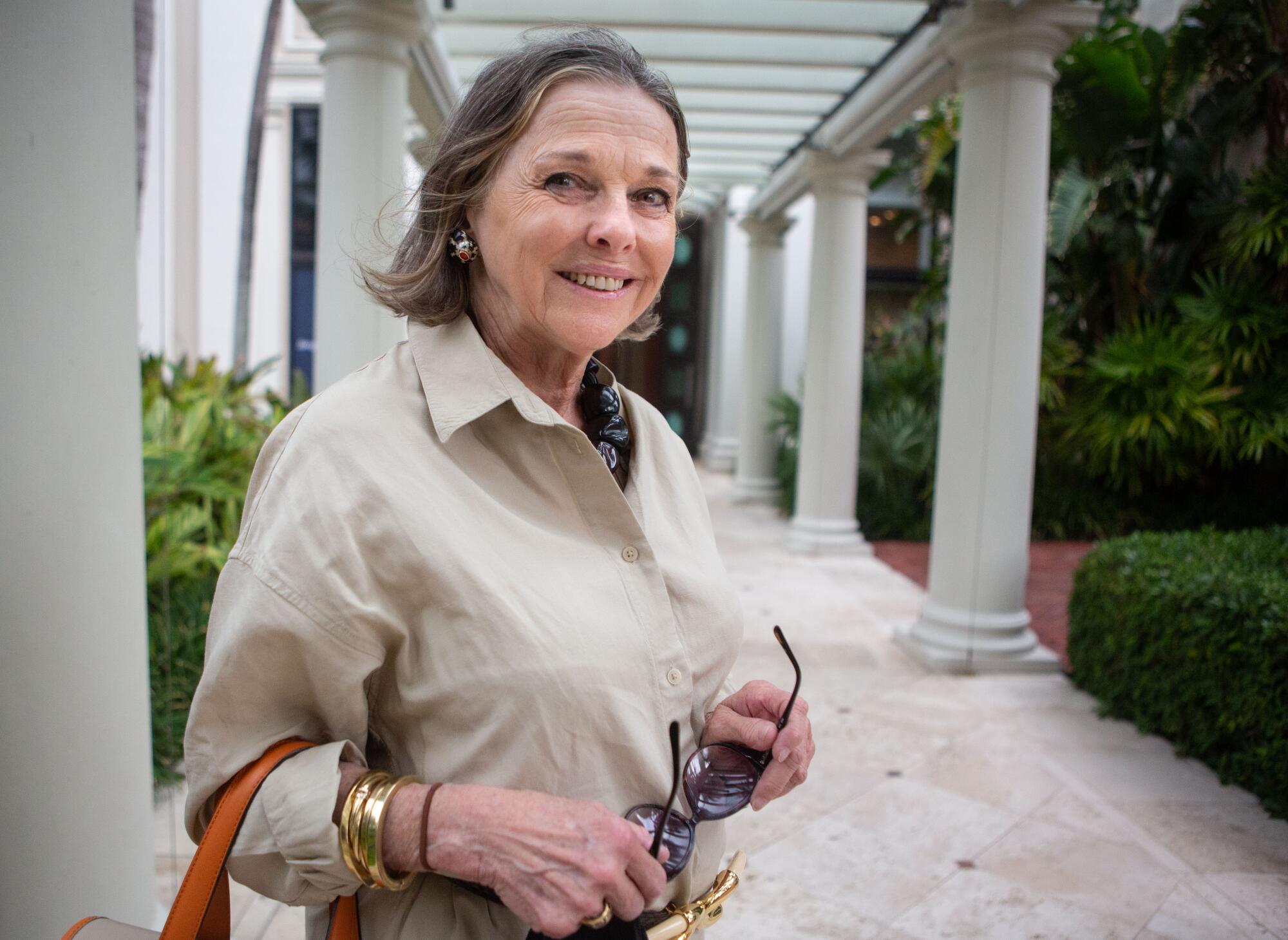
Baker turned heads when she spoke out against Mar-a-Lago in 2017 after Trump said there were “very fine people on both sides” of the deadly “Unite the Right” white supremacist rally in Charlottesville, Va. She said that if charities “have a conscience” they would not hold events at the club, and she quoted Dante in an interview with the Washington Post, saying “the darkest places in hell are reserved for those who maintain their neutrality in times of moral crisis.”
Charities canceled fundraising galas at Mar-a-Lago in droves. Most have not returned.
As Trump’s campaign has struggled amid the pandemic, so has the Palm Beach economy.
On a sweltering Tuesday last month, stores on Worth Avenue — an upscale shopping district with shops like Gucci, Tiffany & Co. and Louis Vuitton — were practically deserted and blasting air-conditioning through open doors onto empty sidewalks. At least 23 storefronts, including a huge Neiman Marcus that closed last month, are empty, Baker said.
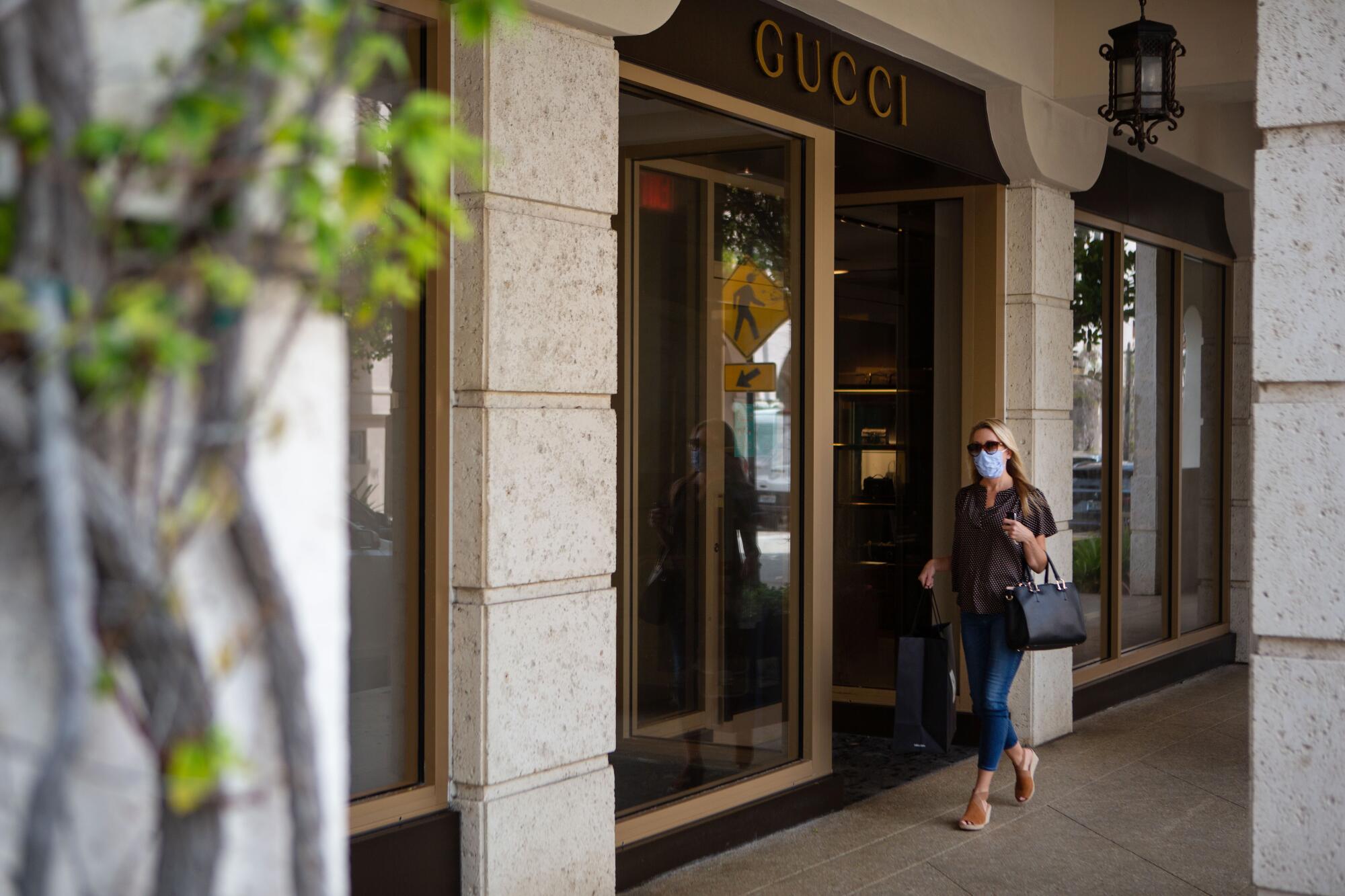
Trump’s handling of the virus, political experts say, could hurt his chances for reelection in Florida, which has an abundance of older voters and has rushed to reopen.
Toni Holt Kramer, founder of the women’s group Trumpettes USA, has lived seasonally in Palm Beach for over a decade and is a longtime member of Mar-a-Lago. She describes the town as “one of the last bastions left in America that still has that kind of old elegance of life,” where people “throw beautiful parties” and dress up for dinner. She says that she is appalled by people in Los Angeles who wear flip-flops in public and that she forbids the shoes in her house.
Kramer had planned a busy 2020, filled with Trump fundraisers and a book tour for her self-published memoir. But for months, Kramer — who says her multiple homes include a “mini Mar-a-Lago” in Palm Springs — hardly left her Palm Beach mansion. In mid-March, she called her house staff together and asked them to stock the refrigerators for a long hunkering-down.
Speaking by phone, Kramer said she‘s been invited to Trump campaign events, where attendees have been mostly unmasked, but has not felt comfortable going.
“I have a respect for this virus … I have people in my house; I have to respect their health as well. I have a husband. He does have an underlying condition,” she said. But if people don’t want to wear masks and feel safe in crowds, that’s their prerogative, she added.
Trump, who was hospitalized this month with COVID-19, returned to the campaign trail with a Florida rally where he said he would “kiss everyone” in the crowd. Asked whether Trump has handled the pandemic well, Kramer is unequivocal: Absolutely. Kramer, a self-described stock market addict, said he kept the country appropriately optimistic.
“I don’t think anybody could do what he has done,” she said.
“COVID is no opponent for our president. Maybe for the rest of the world, but not for him,” she said.
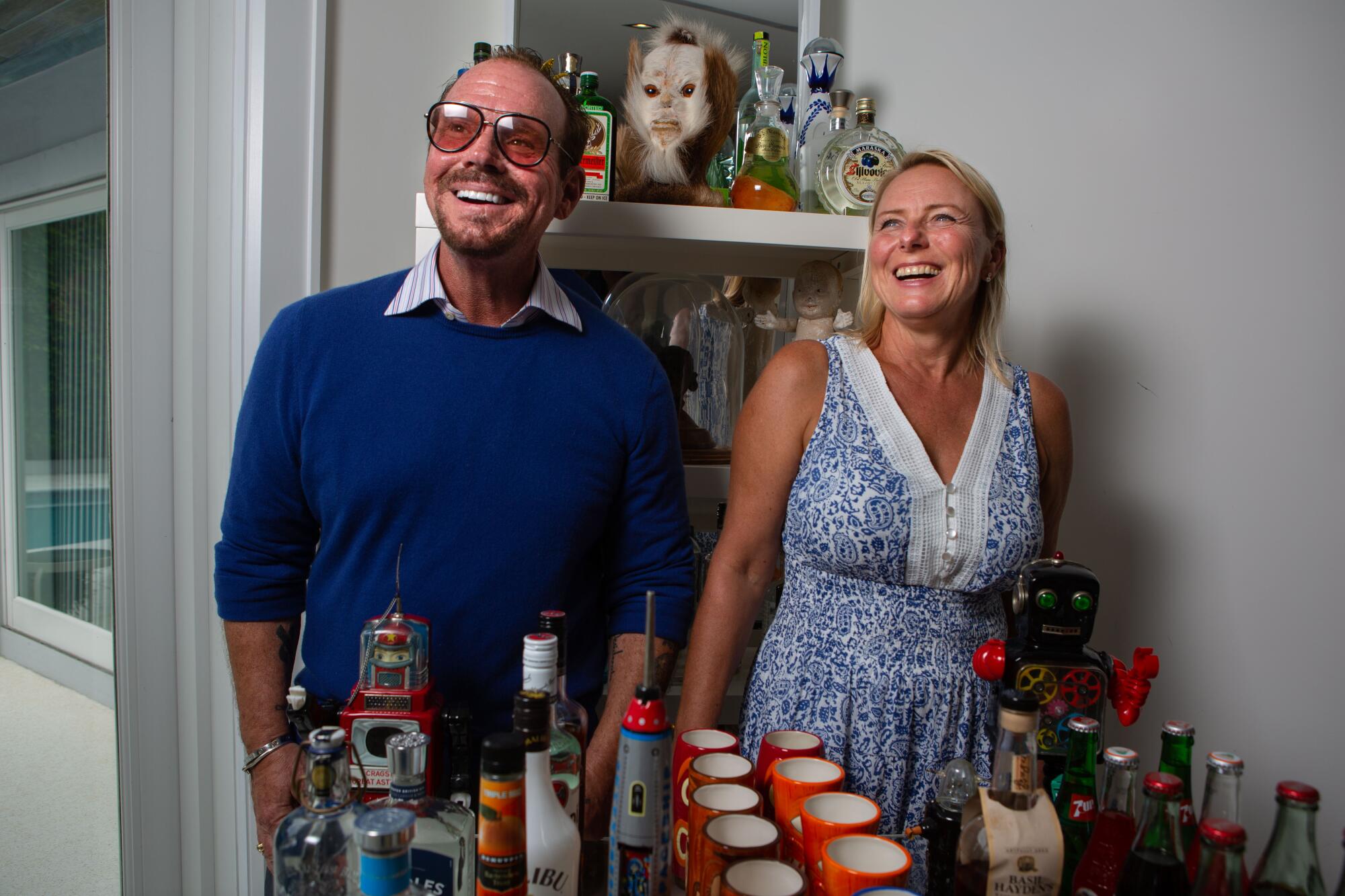
George and Izabela Buff, who live next to Mar-a-Lago, say it saddens them that there’s not a greater sense of community in Palm Beach.
Their street has a heavy Secret Service presence during Trump’s frequent visits, and they have become used to having their cars checked for bombs.
In their living room, George Buff, whose grandfather helped develop the first disposable aluminum pie pan, displays a collection of campy sideshow memorabilia, old toys and a shrunken head. By the pool stands a Grecian-style statue topped with the head of a Ronald McDonald statue that once stood in a drive-through he frequented as a child.
He also has the body of a mannequin he painted gold, and he jokes that if you rub its breasts it combats coronavirus.
“I love to collect things that have intrinsic value, and are ugly to most people, grotesque or sometimes unsettling,” Buff said. “My philosophy is you have to bite into an apple that had a worm in there to really appreciate a good apple.”
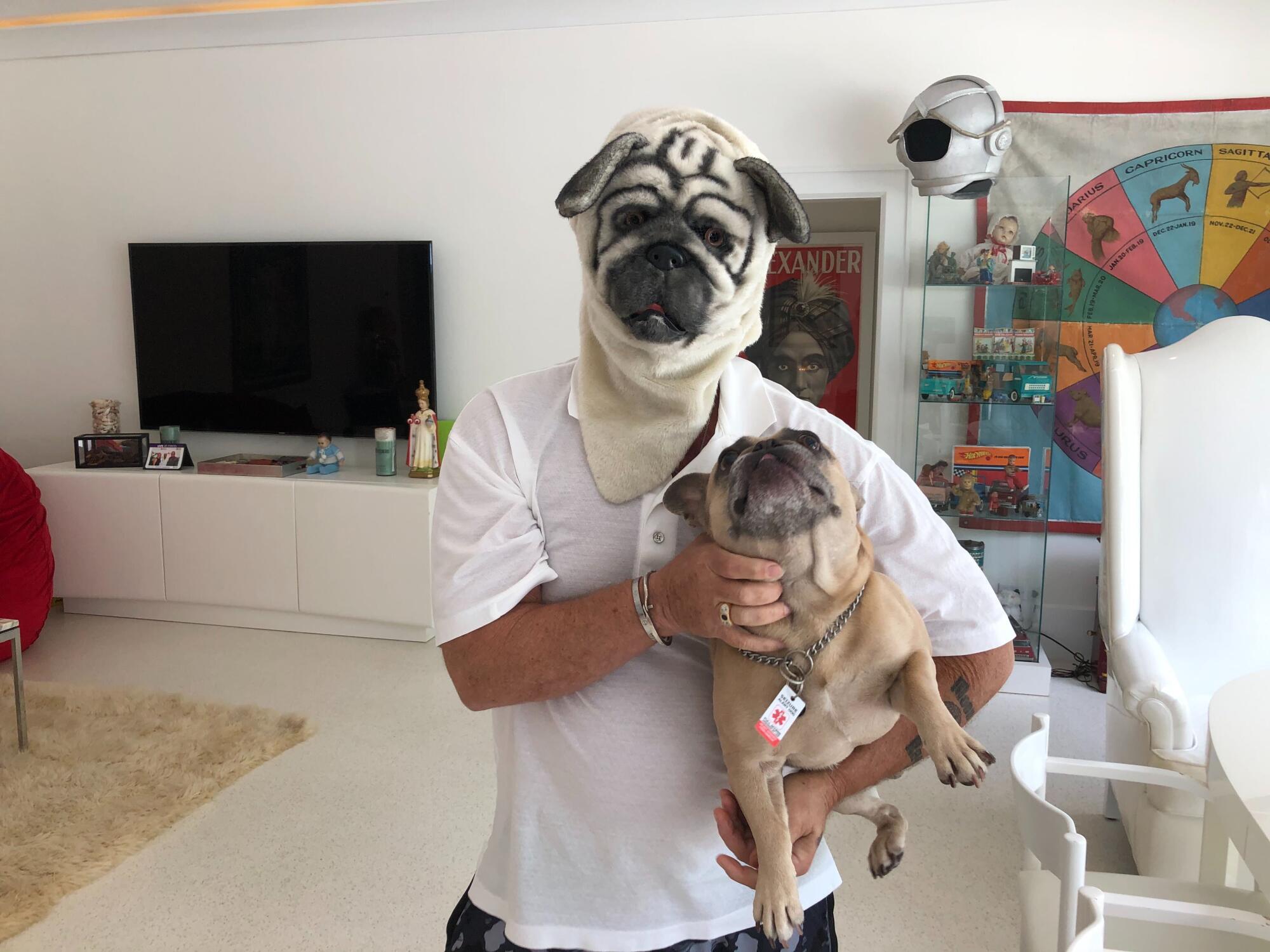
Buff, who says the president was his landlord for a spell, belongs to Mar-a-Lago and has found the Trump family to be polite and attentive to detail, which has garnered his respect and his vote.
Izabela Buff, who grew up in communist Poland and is leery of left-wing politics, says that when she sees Trump supporters in their MAGA hats, waving flags — which you don’t see much on the island — they always seem happy. She admires that.
Milton Jackson, a 60-year-old retired sanitation truck driver from nearby Lake Worth, often fishes in the Intracoastal Waterway, where he can see the giant flag flying at Mar-a-Lago. He tries to ignore it.
Jackson, who is Black, lost his mother, an 80-year-old nursing home resident, to COVID-19 a few weeks ago and says Trump hasn’t seemed to care about those who have died of it — over 219,000 as of Saturday.
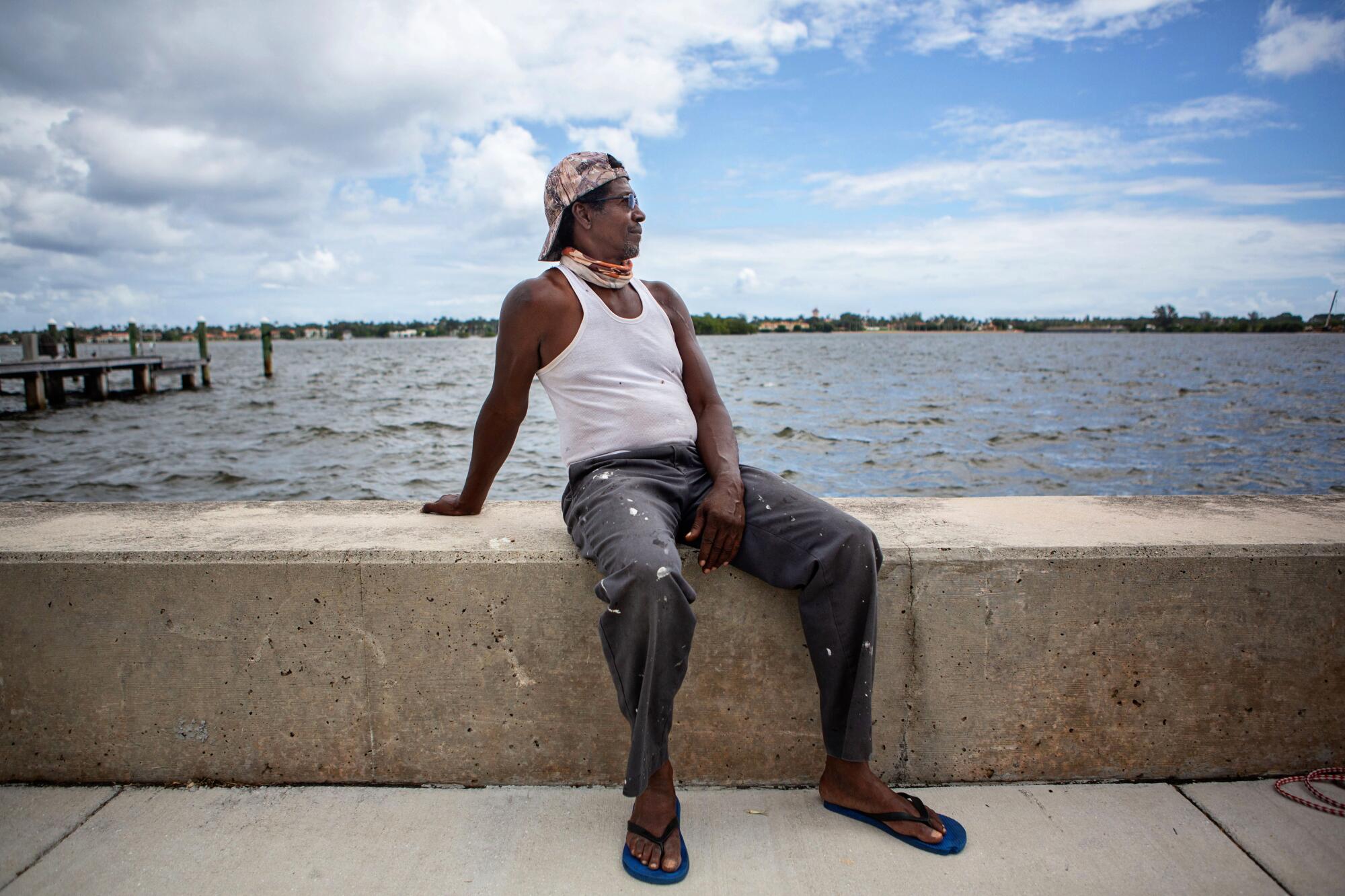
Too many people support Trump, he said, “because they’re racist.”
Last month, the construction and landscaping crews toiling outdoors in Palm Beach and rebuilding the Southern Boulevard Bridge, which Trump’s motorcade uses to cross the Intracoastal Waterway to get to Mar-a-Lago, were made up of mostly Latino or Black workers. Jackson says it’s always like that in the off-season.
“Why does he want to dismiss those people?” Jackson said. “They’re building up America.”
Jackson says that because he is a Black man, he figures Palm Beach residents would only eye him suspiciously.
Does he ever cross the water and go onto the island? He laughed.
“No, no, no, no.”
Times staff researcher Scott Wilson and photographer Jason Armond contributed to this report.
More to Read
Get the L.A. Times Politics newsletter
Deeply reported insights into legislation, politics and policy from Sacramento, Washington and beyond. In your inbox twice per week.
You may occasionally receive promotional content from the Los Angeles Times.












